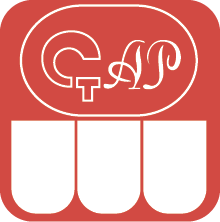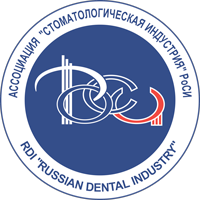DOI:
10.37988/1811-153X_2021_4_114Clinical and statistical analysis of maxillofacial trauma in Kuzbass
Downloads
Abstract
The incidence of maxillofacial trauma nowadays is increasing. According to the Federal Research Institute for Health Organization and Informatics of Ministry of Health of the Russian Federation the highest incidence of skull and facial fractures among other regions is found in Kuzbass. Thus, there is an unmet need for clinical and statistical analysis of maxillofacial fractures in this region.Materials and methods.
Incidence of skull and facial bone fractures based on data provided by the medical information-analytical center of Kuzbass for the period from 2015 to 2020 was analyzed. A retrospective review on a series of 3843 medical records of patients, who had been treated at the departments of oral and maxillofacial surgery of Kemerovo and Novokuznetsk state hospitals between 2015 and 2020, was conducted. Etiology and fracture types with corresponding incidence were evaluated, with subsequent calculation of proportion of maxillofacial trauma types.
Results.
This study has shown mean prevalence rate of facial fractures of 23.8 per 100,000 pop. cases between 2015 and 2020 in the Kuzbass departments of oral and maxillofacial surgery. A slight decreasing trend in maxillofacial injuries was noted with a mean decrement rate of 2.3%. A significant mean increase of multiple facial fracture rate was discovered — 6.7% annually. Mandible fractures were most common among all maxillofacial trauma patients reaching rate of 78.8%, mainly due to criminal injuries, civilian trauma and sports-related injuries, ranging between 81.4 and 86 per cent. The most common cause (in 57.9% of cases) of maxillofacial injury was criminal injuries. The maxillofacial injuries were most common in males. The overall ratio of males to females was 7.2:1. Facial fractures were prevalent mainly in patients between 18 and 44 years of age (70.2—83.8%). The proportion of pediatric subjects (0—17 years) among other age groups was 4.7%.
Key words:
maxillofacial region, facial bone fractures, injuries, mandible fractureFor Citation
[1]
Golavskiy P.I., Pylkov A.I., Gorodkov Zh.E., Shternis T.A., Malkov N.V. Clinical and statistical analysis of maxillofacial trauma in Kuzbass. Clinical Dentistry (Russia). 2021; 24 (4): 114—121. DOI: 10.37988/1811-153X_2021_4_114
References
- Aleksandrova G.A., Golubev N.A., Tyurina E.M., Ogryzko E.V., Zalevskaya O.V., Avdeeva L.N. Socially significant diseases population of Russia in 2018 (Statistical Materials). Moscow: Department of Monitoring, Analysis and Strategic Health Development; Federal Research Institute for Health Organization and Informatics of Ministry of Health of the Russian Federation, 2019. Pp. 59—62 (In Russ.).
- Jeon E.G., Jung D.Y., Lee J.S., Seol G.J., Choi S.Y., Paeng J.Y., Kim J.W. Maxillofacial Trauma Trends at a Tertiary Care Hospital: A Retrospective Study. Maxillofac Plast Reconstr Surg. 2014; 36 (6): 253—8. PMID: 27489843
- Urgunaliev B.K., Yuldashev I.M., Rakhmanov A.T., Shayahmetov D.B. Clinical and epidemiological features and medical and social characteristics of victims with injuries to the maxillofacial bones, according to the department of maxillofacial reconstructive plastic surgery of the national hospital of the ministry of health of the Kyrgyz Republic in 2010—2018. Russian Journal of Dentistry. 2020; 24(2): 109—13 (In Russ.). eLIBRARY ID: 43999889
- Gavlovskaya G.V., Pushkareva N.O. Problems and trends in the social sphere of Russia in the context of sustainable development. Bulletin of the Altai Academy of Economics and law. 2020; 4-1: 19—28 (In Russ.). eLIBRARY ID: 42673304
- Lastovetskiy A.G., Lebedev M.V., Averyanova D.A. Frequency and structure of traumatic damages of brain and facial part of skull in road traffic accident victims. University Proceedings. Volga Region. Medical Sciences. 2014; 31(3): 105—16 (In Russ.). eLIBRARY ID: 21992291
- Ulyanchenko M.I., Hodzhayan A.B., Apaguni A.E. et al. Road traffic injuries among residents of Stavropol. Fundamental research. 2013; 5—2: 427—30 (In Russ). eLIBRARY ID: 19034842
- Lepilin A.V., Bakhteeva G.R., Nozdrachev V.G., Shikhov M.Yu., Ramazanov A.Kh. Clinical and statistical analysis of traumatic injuries of maxillofacial region and their complications on materials of the department of maxillofacial surgery from 2008 till 2012. Saratov Journal of Medical Scientific Research. 2013; 3(9): 425—8 (In Russ.). eLIBRARY ID: 21156629
- Alharbi F.A., Makrami A.M., Ali F.M., Maghdi A.A. Patterns and Etiology of Maxillofacial Fractures: A 5-year Retrospective Study. J Contemp Dent Pract. 2020; 21 (4): 445—452. PMID: 32584284
- Obimakinde O.S., Ogundipe K.O., Rabiu T.B., Okoje V.N. Maxillofacial fractures in a budding teaching hospital: a study of pattern of presentation and care. Pan Afr Med J. 2017; 26: 218. PMID: 28690732
- Almasri M. Severity and causality of maxillofacial trauma in the Southern region of Saudi Arabia. Saudi Dent J. 2013; 25 (3): 107—10. PMID: 24179319
- Werlinger F., Villalón M., Duarte V., Acevedo R., Aguilera R., Alcocer D., Badillo O., Briones R., Condal C., Del Río M., García R., Herrera M., Jaramillo J., Merchan F., Nasi M., Osbén R., Rivera A., Riviello S., Rojas P., Vidal C., Rodríguez G., Schild S., Arroyo E., Alvarado M.J., Sepúlveda P., Cortés J. Trends of maxillofacial trauma: An update from the prospective register of a multicenter study in emergency services of Chile. Med Oral Patol Oral Cir Bucal. 2019; 24 (5): e588-e594. PMID: 31433390
- Jariod Ferrer Ú.M., Blanco Sanfrutos S., Gavin Clavero M.A., Simon Sanz M.V., Uson Bouthelier T., Nadal Cristobal B. Epidemiological study of the socioeconomic impact of mandible fractures in a Spanish Tertiary Hospital: Review of the literature. J Maxillofac Oral Surg. 2019; 18 (2): 217—223. PMID: 30996541
- Sbordone C., Barca I., Petrocelli M., Dell’Aversana Orabona G., Vaira L.A., Colangeli W., Cristofaro M.G., Giudice M., Giudice A., Cassandro F.M., Attanasi F., Iaconetta G., Califano L. The Influence of socioeconomic factors on the epidemiology of maxillofacial fractures in Southern Italy. J Craniofac Surg. 2018; 29 (8): 2119—2123. PMID: 29771827
- Abdrashitova A.B., Saleyev R.A. Temporary disability of patients with injuries of maxillofacial region. Russian Journal of Dentistry. 2019; 23 (3—4): 133—139 (In Russ.). eLIBRARY ID: 41857068
- Kulakov A.A. (eds.) Maxillofacial surgery. Moscow: GEOTAR-Media, 2019. Pp. 64 (In Russ.). eLIBRARY ID: 39250717
- Alves L.S., Aragão I., Sousa M.J., Gomes E. Pattern of maxillofacial fractures in severe multiple trauma patients: a 7-year prospective study. Braz Dent J. 2014; 25 (6): 561—4. PMID: 25590206
- d’Avila S., Barbosa K.G., Bernardino Íde M., da Nóbrega L.M., Bento P.M., E. Ferreira E.F. Facial trauma among victims of terrestrial transport accidents. Braz J Otorhinolaryngol. 2016; 82 (3): 314—20. PMID: 26614044
- Juncar M., Tent P.A., Juncar R.I., Harangus A., Mircea R. An epidemiological analysis of maxillofacial fractures: a 10-year cross-sectional cohort retrospective study of 1007 patients. BMC Oral Health. 2021; 21 (1): 128. PMID: 33731083
- Fokas N.N., Levenets A.A., Gorbach N.A. Characteristics of injuries of the maxillofacial area in the adult population and analysis of the activities of the department of maxillofacial surgery based on materials of the KGBUZ KKB (Krasnoyarsk). Siberian Medical Review. 2014; 3(87): 44—8 (In Russ.). eLIBRARY ID: 21642029
- Glukhova Yu.M., Sinyakov V.P., Sinyakova A.N. Epidemiological aspects of injuries of the maxillofacial region among the population of the city of Khabarovsk. The Dental Institute. 2018; 1(78): 28—9 (In Russ.). eLIBRARY ID: 34964779
- Abhinav R.P., Selvarasu K., Maheswari G.U., Taltia A.A. The Patterns and Etiology of Maxillofacial Trauma in South India. Ann Maxillofac Surg. 2019; 9 (1): 114—117. PMID: 31293938
- Arslan E.D., Solakoglu A.G., Komut E., Kavalci C., Yilmaz F., Karakilic E., Durdu T., Sonmez M. Assessment of maxillofacial trauma in emergency department. World J Emerg Surg. 2014; 9 (1): 13. PMID: 24484727
- Samieirad S., Aboutorabzade M.R., Tohidi E., Shaban B., Khalife H., Hashemipour M.A., Salami H.R. Maxillofacial fracture epidemiology and treatment plans in the Northeast of Iran: A retrospective study. Med Oral Patol Oral Cir Bucal. 2017; 22 (5): e616-e624. PMID: 28809369
- Karpov S.M., Khristoforando D.Yu., Shevchenko P.P., Sharipov E.M., Abidokova F.A. Epidemiological aspects of maxillofacial trauma for example Stavropol. Russian Journal of Dentistry. 2012; 1: 50—1 (In Russ.). eLIBRARY ID: 18112397
- Xiao-Dong L., Qiu-Xu W., Wei-Xian L. Epidemiological pattern of maxillofacial fractures in northern China: A retrospective study of 829 cases. Medicine (Baltimore). 2020; 99 (9): e19299. PMID: 32118746
- Afanasyev V.V. Traumatology of the maxillofacial region. Moscow: GEOTAR-Media, 2019. P. 9. (In Russ.). eLIBRARY ID: 19550252
- Manodh P., Prabhu Shankar D., Pradeep D., Santhosh R., Murugan A. Incidence and patterns of maxillofacial trauma-a retrospective analysis of 3611 patients-an update. Oral Maxillofac Surg. 2016; 20 (4): 377—383. PMID: 27663240
- Agarwal P., Mehrotra D., Agarwal R., Kumar S., Pandey R. Patterns of Maxillofacial Fractures in Uttar Pradesh, India. Craniomaxillofac Trauma Reconstr. 2017; 10 (1): 48—55. PMID: 28210408
- Arangio P., Vellone V., Torre U., Calafati V., Capriotti M., Cascone P. Maxillofacial fractures in the province of Latina, Lazio, Italy: review of 400 injuries and 83 cases. J Craniomaxillofac Surg. 2014; 42 (5): 583—7. PMID: 24035287
- Sipkin A.M., Akhtyamova N.E., Akhtyamov D.V. Characteristics of acute traumatic injuries of maxillofacial region. Russian Medical Journal. 2016; 14: 932—5. (In Russ.). eLIBRARY ID: 27185903
- Egorenko S.N., Bugakova N.S., Gokhberg L.M. et al. Regions of Russia. Social-economic activities. 2018: Statistical compendium. Moscow: Rosstat, 2018. Pp. 427—428 (In Russ.).
- Malkov P.V., Baranov E.F., Bezborodova T.S., Bobylev S.N., Bugakova N.S. et al. Russia in numbers. 2020: Summary of statistics. Moscow: Rosstat, 2020. Pp. 180—181 (In Russ.).
Downloads
Received
September 6, 2021
Accepted
October 18, 2021
Published on
December 1, 2021









